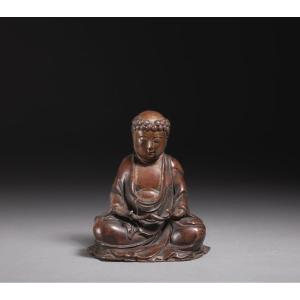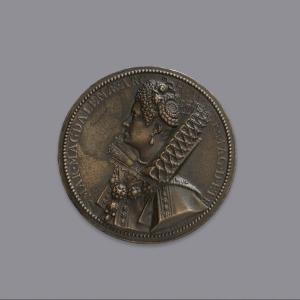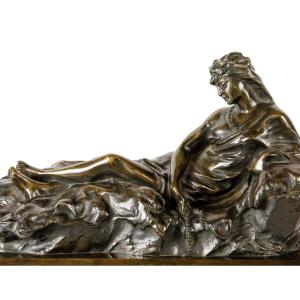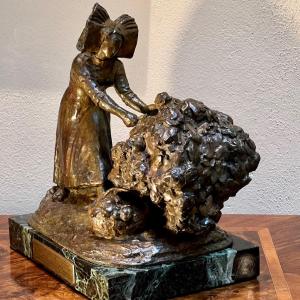Venice, circa 1600
Niccolò Roccatagliata (active 1593–1636)
Bronze with brown patina
Height (bronze): 26 cm
Height (with base): 29.5 cm
Base: Porphyry
This exquisite bronze depicts a putto playing the flute. The casting and patina are characteristic of the robust and dense bronzes produced in Venice around 1600. The figure is animated with a slight twisting motion, giving it vitality and a strong sense of three-dimensionality.
The Metropolitan Museum holds two musical putti, including an identical model of lesser craftsmanship (inv. 45.60.36, see illustration). The theme of the musical putto is a recurring motif in Renaissance and Mannerist art. Putti are allegorical figures often associated with love, music, or the divine.
Niccolò Roccatagliata was a renowned Venetian sculptor active at the turn of the 16th and 17th centuries. He is best known for his bronze works, which blend Mannerist influences with the early signs of Baroque style. His creations are distinguished by their refinement and elegance. Roccatagliata frequently collaborated with skilled founders, such as Alessandro Vittoria, on commissions for churches and wealthy Venetian patrons.






















 Le Magazine de PROANTIC
Le Magazine de PROANTIC TRÉSORS Magazine
TRÉSORS Magazine Rivista Artiquariato
Rivista Artiquariato
